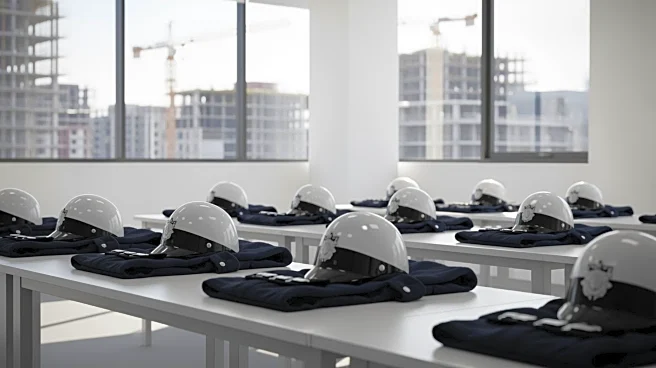What's Happening?
In Brussels, over 60 delegations convened to discuss the reconstruction, governance, and security of the Gaza Strip, focusing on reforms of the Palestinian Authority. Co-chaired by France and Saudi Arabia,
the meeting is part of a broader initiative to train 3,000 Palestinian policemen to secure the region, with France pledging 100 officers. The EU aims to play a significant role in post-war Gaza, advocating for deep reforms within the Palestinian Authority, including the removal of the 'martyrs' fund' and textbook overhauls. The U.S. peace plan, approved by the U.N. Security Council, calls for Israeli military withdrawal from Gaza, replaced by trained police and an International Stabilization Force.
Why It's Important?
The EU's involvement in Gaza's reconstruction and security is crucial for stabilizing the region and ensuring effective governance. By training Palestinian police, the EU seeks to empower local authorities and reduce reliance on external military forces. This initiative could lead to significant political shifts, with the Palestinian Authority potentially gaining more control over Gaza. However, the success of these efforts depends on the Authority's willingness to implement reforms and the cooperation of neighboring countries. The EU's push for reform is also tied to financial aid, emphasizing the need for accountability and transparency in governance.
What's Next?
The EU plans to recruit from a pool of 7,000 Gazan police officers for training, with discussions ongoing with neighboring countries to host the program. The formation of a Board of Peace and a technocratic committee to manage Gaza's civil service is underway, though it faces resistance from Palestinian society. The upcoming event in Egypt aims to raise funds for Gaza's reconstruction, while the EU continues to advocate for reforms and financial stability within the Palestinian Authority. The international community's response to these developments will be critical in shaping the future of Gaza.











